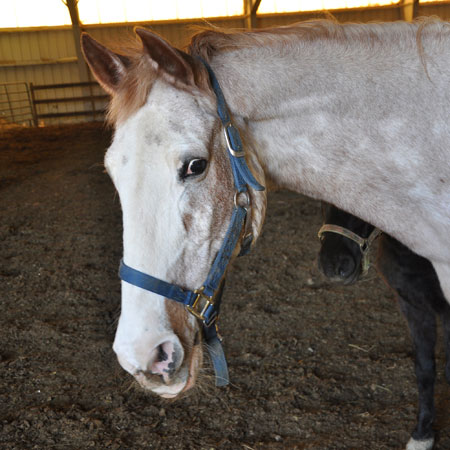So don't tell me people can't change, don't tell me there isn't an awakening happening right now.
You don't like something about yourself - change it. You don't like something about this world, stand up and declare your disapproval and then do something about it. Don't wait for the next guy (or gal), to mosey on up and take over the helm.
There was a period of time in between the above mentioned days and before I became a vegetarian. I had experienced my first taste of bullying on the internet, getting into my first 'war' on the world wide web with a couple of men up high out in a north west state that was banking on the slaughter horse industry taking a steady line of fresh horse meat to fatten their wallets (and deepen their karmic debt). They had me rethinking my stance on slaughter horses by that ignorant ass argument of the countless 'bad' horses that didn't belong anywhere except slaughter houses feeding the mighty powerful ego of people who foul the air by their mere presence.
Sure am glad I evolved thru that line of B.S. read the article received through a newsletter with the ASCPApro or click on the link:
https://www.aspca.org/take-action/advocacy-center/usa-urge-congress-ban-horse-slaughter-once-and-all
The Facts About Horse Slaughter
The term “horse slaughter” refers exclusively to the killing and processing of horses for human consumption. Horse slaughter is not humane euthanasia. While “euthanasia” is defined as a gentle, painless death provided in order to prevent suffering, slaughter is a brutal and terrifying end for horses.
Horses bound for slaughter (who may include pregnant mares, foals and horses who are injured or blind) are commonly shipped for more than 24 hours at a time in crowded trucks without food, water or rest. The methods used to kill horses rarely result in quick, painless deaths for these animals and sometimes they even remain conscious during dismemberment.
Currently, there are no horse slaughterhouses in the United States, but 150,000 American horses are trucked over our borders each year to slaughter facilities in Mexico and Canada. Long-distance transport is an inherent aspect of this industry. Given the vast geography of the U.S., any transport of American horses to slaughter—within or outside the U.S.—will be long and brutal.
In April 2015, Congress introduced the Safeguard American Food Exports (SAFE) Act (H.R.1942/S. 1214) to prohibit the slaughter of horses for human consumption in the United States and ban their export abroad for that purpose, and the ASPCA and others who care about equines continue fighting to end the practice for good.
A New Year, a New Chance for Advocacy
 The end of 2015 marks two events: the adjournment of the first session of the 114th Congress and the beginning of an election year. Election years mean more opportunities to lobby, since elected officials are more anxious than ever to listen to their constituents’ concerns. The 2016 calendars for the U.S. House of Representatives and the U.S. Senate reveal that campaigning will bring members back home to their states and districts more often than usual, including a six-week stretch during July and August. To take advantage of these lobbying opportunities:
The end of 2015 marks two events: the adjournment of the first session of the 114th Congress and the beginning of an election year. Election years mean more opportunities to lobby, since elected officials are more anxious than ever to listen to their constituents’ concerns. The 2016 calendars for the U.S. House of Representatives and the U.S. Senate reveal that campaigning will bring members back home to their states and districts more often than usual, including a six-week stretch during July and August. To take advantage of these lobbying opportunities:- Find out who your representatives are in the U.S. House of Representatives and the U.S. Senate.
- Sign up for your representatives’ mailing lists on their websites to receive important updates about public events.
- Schedule in advance meetings with your representatives during their home visits.
- Watch for announcements about upcoming opportunities to meet your representatives, including town hall meetings and other public events.
- Join the ASPCA Horse Action Team so you are well prepared and confident to be a powerful voice for horses.
The Fight to Abolish Horse Slaughter
Every year, approximately 150,000 American horses are trucked over U.S. borders to be slaughtered for food. Until this practice is banned and Congress passes a law against slaughter, no horse is safe. The ASPCA is urging equine rescues, sanctuaries and their supporters to join the fight against horse slaughter.
Learn more about public involvement and equine advocacy, join the ASPCA Horse Action Team and sign the anti-slaughter pledge (and get your supporters on the bandwagon as well).
No comments:
Post a Comment
Thank you for taking the time to let us your valuable feedback, we do monitor the comment section and as of November 15, 2015 all relevant comments will be allowed. Please be respectful that this is a 'Open to the Public' blog, let us communicate properly. Offensive language will not be permitted.